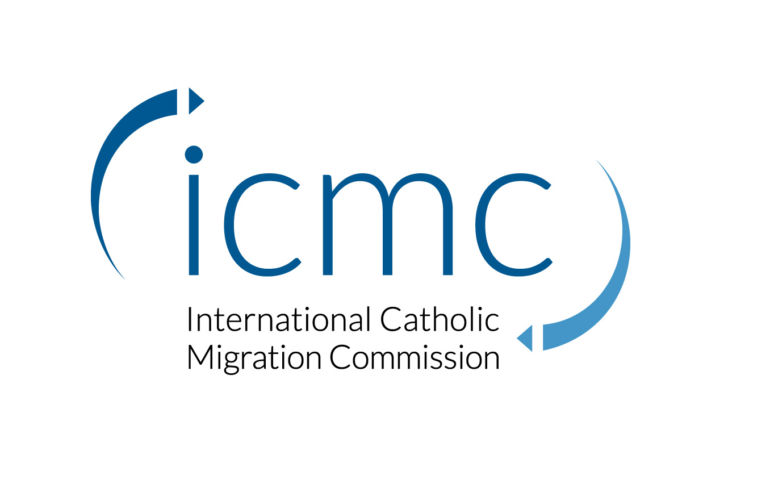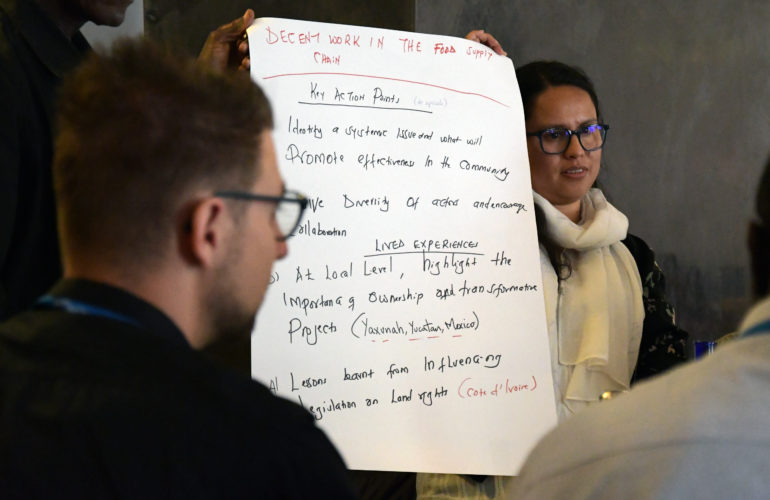ICMC Coordinates Civil Society Contributions to the Global Discussions on Migration Policy and Practice
Ahead of the 15th Summit of the Global Forum on Migration and Development, global civil society delivered key messages on migration policy and practice at the 2nd GFMD Roundtable Discussions.
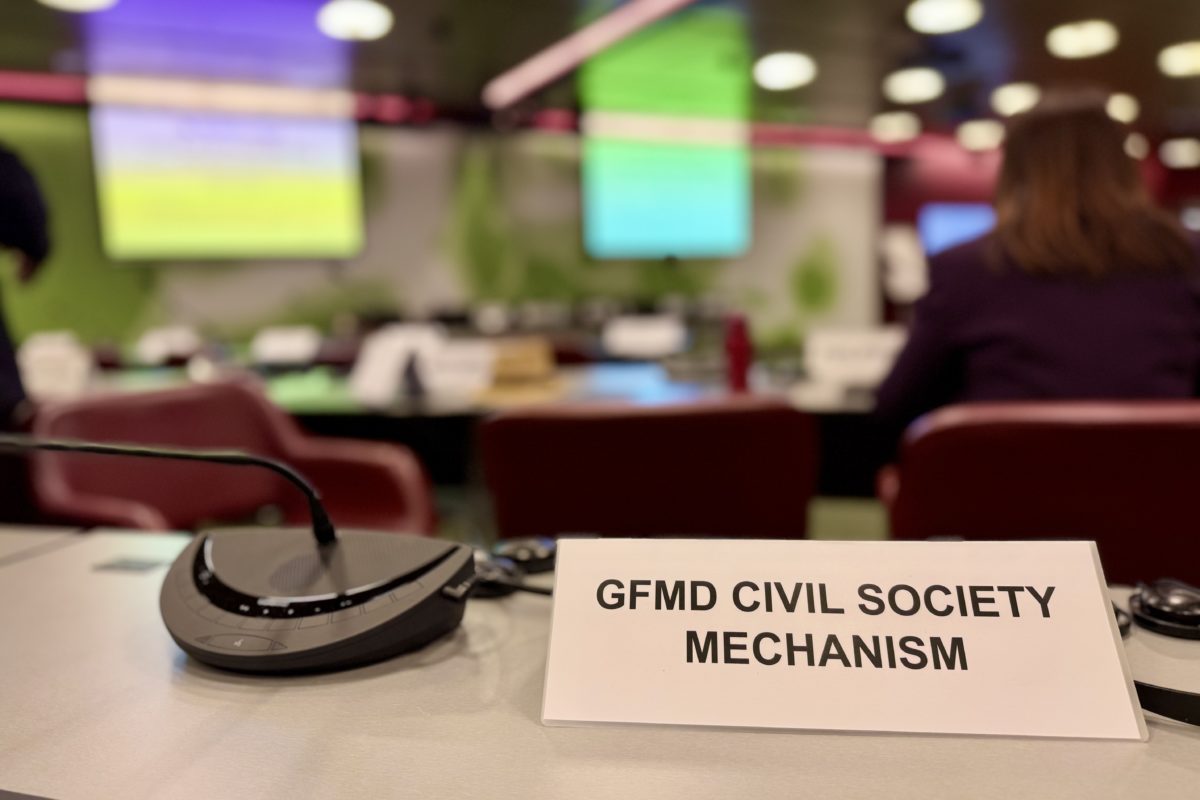
The 2024-25 Global Forum on Migration & Development (GFMD)* was officially launched on 3 September 2024, in Geneva, Switzerland.
Ahead of the 15th GFMD Summit, to be held in Colombia in June 2025, the Colombian Chairship of the 2024-25 GFMD process is coordinating a program of preparatory consultations and discussions. In its long-standing capacity as the Civil Society Mechanism of the GFMD, ICMC facilitates the engagement of civil society organizations in the GFMD process.
Global GFMD Preparations To Date: A Look Back
The global preparatory process for the 2024-25 GFMD began on 6-7 November 2024, with the 1st Roundtable Consultations led by the Colombian Chairship.
The civil society GFMD preparatory process, known as Civil Society on the Road to Colombia (Sociedad Civil en Rumbo a Colombia), formally began earlier in July 2024, with four online regional consultations on the preliminary GFMD program organized by the Civil Society Mechanism. In preparation for the first Roundtable Consultations, held on November 6-7 2024 in Geneva, the Civil Society Mechanism organized the first GFMD Civil Society Thematic Dialogues, held on 28-30 October 2024 and open to civil society representatives from around the world.

The GFMD preparatory process continues in early 2025, with a second round of Thematic Dialogues held by the Civil Society Mechanism on 29-30 January. Held ahead of the 2nd GFMD Preparatory Meeting on 19-20 February and following its central theme, this series of online sessions engaged 400 civil society representatives from around the world in discussions on exchanging successful policies and practices. Sessions were themed around the six thematic priorities for the GFMD, defined by the Colombian Chairship together with stakeholders at the outset of the GFMD process.**
Shaping the GFMD: A Platform To Respond to Current Global Challenges?
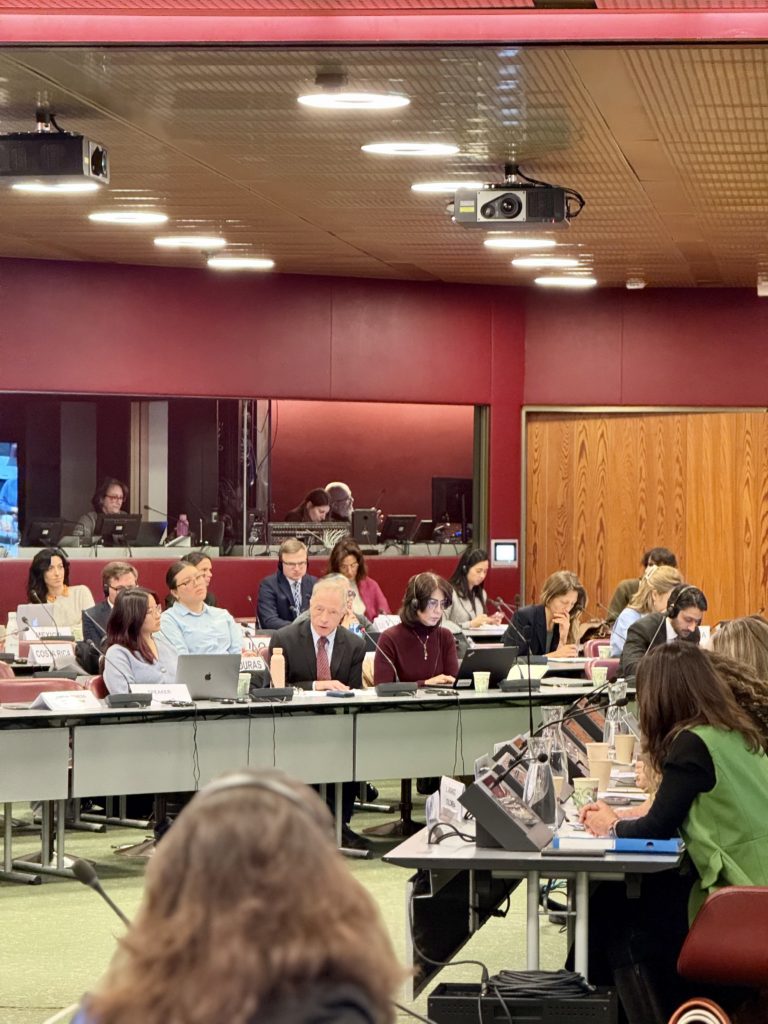
2025 GFMD preparations take place in a context of growing challenges for migrants worldwide, and rapid changes affecting the global migration and humanitarian sectors.
“In the past months, we have witnessed an increasingly hostile landscape for migrants and their communities, as well as for international development and human rights as a whole,” said Elana Wong, Coordinator of the GFMD Civil Society Mechanism, at the 2nd Roundtable Consultations. “We have seen the increasing normalization of rapid mass deportations, the dismissal of international legal obligations, and narratives criminalizing migrants and even diversity itself. It is more pressing than ever that we have opportunities for open dialogue, like these provided by the GFMD, to ensure that communities and migrants are not left behind.”
For civil society, it was therefore essential that interventions at the 2nd Roundtable Consultations acknowledged and highlighted these realities, and that the wider GFMD process provides a flexible global platform for stakeholders to jointly address contemporary and pressing issues.
“Collecting promising policies and practices has sometimes lacked a proper methodology and, above all, what we would call quality control,” observed Stéphane Jaquemet, ICMC’s Director of Policy and Chief Operations Officer, in his intervention at the Friends of the Forum meeting that kicked off the 2nd GFMD Preparatory Meeting agenda. “It is essential to consider the elements that make a policy or a practice effective, and to ensure that impact is measured through evaluation by migrant and diaspora communities themselves.”
Key Civil Society Messages at the 2nd GFMD Roundtable Discussions
Ahead of the 2nd Roundtable Consultations, civil society discussions at the Thematic Dialogues accordingly went beyond identifying isolated examples of specific policies or practices. They instead anchored these examples in their wider local, national, and regional contexts, and highlighted the need to fully evaluate the factors contributing to their effectiveness and success.
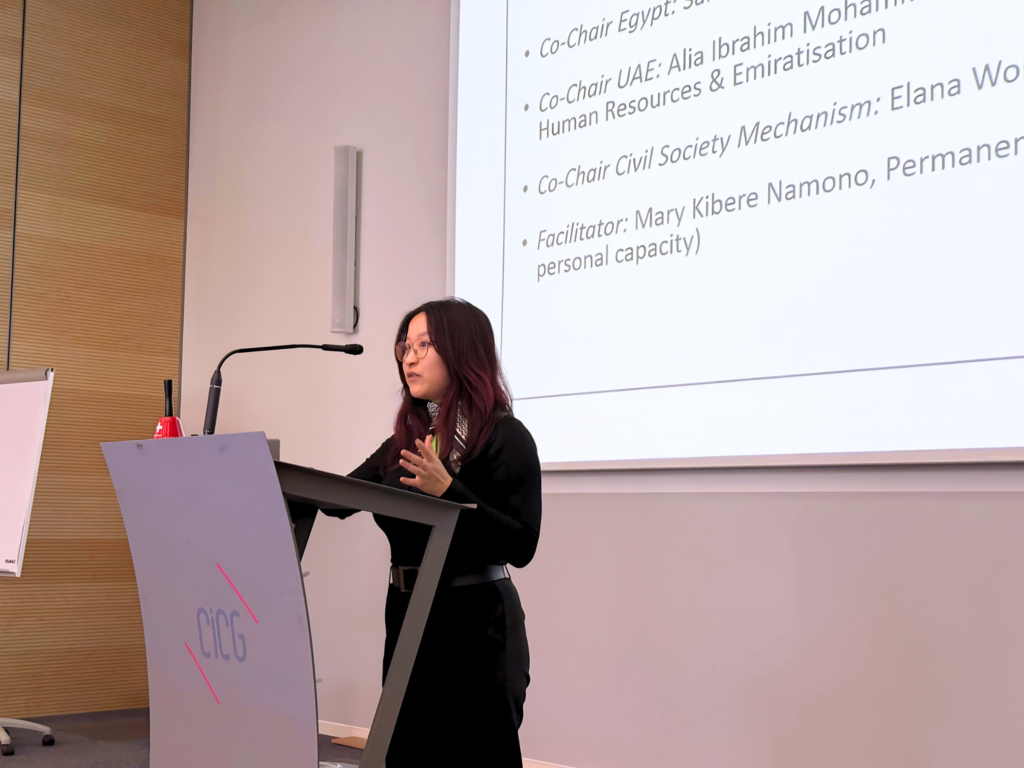
A central civil society consensus emerging from the discussions was the need to put rights, protection, and access to services for migrant communities at the center of identifying successful practice and policies. Two key questions were at the center of this rights-based and people-centered approach:
- How can we ensure that migration policies do not merely exist on paper but genuinely uphold human rights, safeguard international law, and protect labor standards?
- How can we use the GFMD as a space where these urgent issues are addressed, and where our collective voices drive meaningful change?
This framework enabled civil society participants at the Thematic Dialogues to identify eleven cross-cutting elements of a successful policy or practice to take forward into the 2nd Roundtable Discussions, consolidated into a Civil Society Advocacy Brief published in English, French, and Spanish.
These key messages include calls for policy and practice to be informed by inclusive and holistic design, take account of the specific contexts of affected communities, and be firmly and concretely grounded in human rights, international law, and core labor standards. They also reflect the strong need for policy and practice to be developed with the participation of affected communities, via inclusive and meaningful opportunities to take part in these processes, and measures for participatory data collection, monitoring and evaluation mechanisms, and community-based reporting mechanisms.
On 19-20 February, the 2nd Roundtable Discussions took place under Chatham House Rules. Small, multistakeholder groups were presented with selected policy and practice examples, intended as inspirational examples, and invited to discuss their replicability. The cross-cutting messages identified during the Thematic Dialogues were brought to the Roundtable Consultations by nine civil society delegates from five regions**, a strategic approach that ensured the insights set out in the Civil Society Advocacy Brief informed roundtable discussions.
Looking Toward the Summit: Next Steps for Civil Society
The 2nd Roundtable Discussions also saw the announcement by the Colombian Chairship that the 15th GFMD Summit will take place in Barranquilla, Colombia, on 11-13 June 2025. The GFMD Preparatory Days, a crucial point of dialogue and exchange, will take place on 9-10 June.
In the lead-up to the Summit, the Civil Society Mechanism is finalizing its remaining preparatory activities and developing the nomination process for the Summit civil society delegation. A Global Civil Society Debrief planned for 24 March will review the activities of the “Sociedad Civil En Rumbo a Colombia” to date, and launch the delegation nomination process.
***
* The GFMD is a state-led, informal, and non-binding process that helps shape the global debate on migration and development and allows governments – in partnership with civil society, the private sector, local and regional governments, youth and other relevant stakeholders – to analyze and discuss sensitive issues, create consensus, pose innovative solutions, and share policy and practices.
Find out more about the GFMD Civil Society Mechanism and the 2024-25 GFMD.
** The Colombian Chairship has introduced three overarching priorities for the 2024-25 GFMD, namely human rights, labor migration, and regular pathways. Per the normal GFMD process, the Chair has worked with stakeholders to identify six thematic priorities to guide GFMD discussions:
- Strength in Movement: The Impact of Women on Global Migration and Development.
- Children and Youth on the Move: Innovators for Tomorrow’s Development.
- The Interplay of Media and Culture to Construct and Deconstruct the Reality of Migration.
- Climate Change: Safe Labor Routes as a Bridge to Prosperity.
- Regional Cooperation and Integration to Promote Safe and Regular Migration for Development.
- New Technologies and Digitalization: Improving Migration Management and Regular Migration Pathways.
*** Genevieve Gencianos, Public Services International; Helena Olea, Alianza Americas; Loise Au, Pacific Migration Platform; Marie Lobjoy, Secours Catholique-Caritas France; Martha Salazar, Wo-Mi, WIMN and Diplomacia Feminista por la Paz; Paola Cammilli, International Trade Union Confederation; Rana Refahi, International Detention Coalition; Sam Reid, Migrant Help UK; Stella Opoku-Owusu, African Foundation for Development (AFFORD).

Rachel Westerby
Independent writer and researcher on migration, refugees, and human rights.

